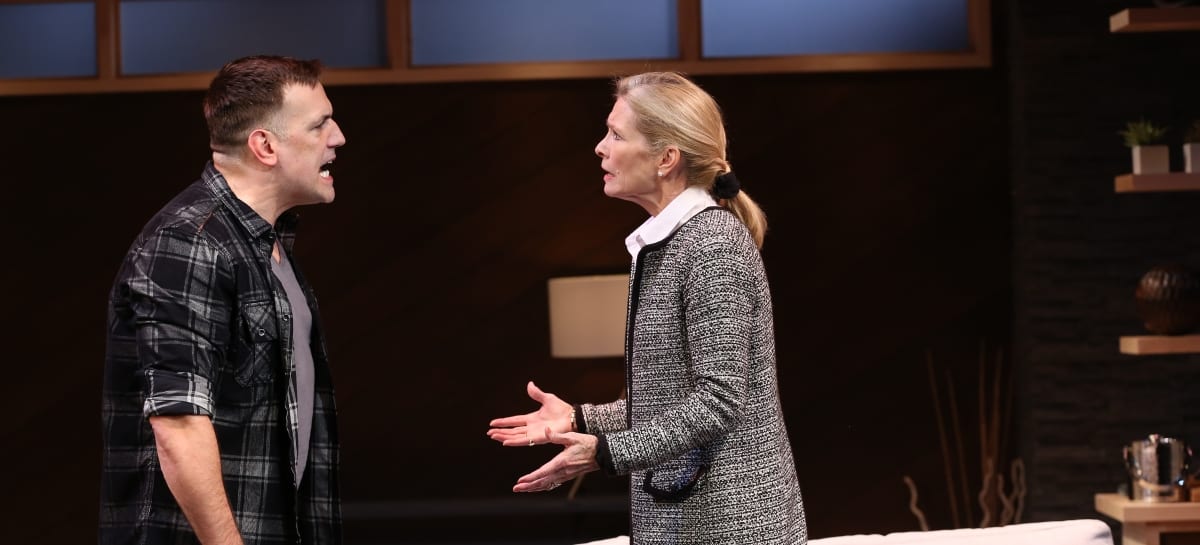Daniel and Mitchell have it all: a loving home, great friends, careers they’re proud of. But no marriage certificate. Daniel wants it, and Mitchell is decidedly against it. It’s such rich ground to explore in the newly-minted America of marriage equality: questions of assimilation, the reality of social change, and whether we as gay individuals have an inherent impulse to never settle down. But as quickly as these questions arise in Michael McKeever’s drama, they are shrouded in a plot resembling a procedural Lifetime film, redeemed primarily by the commitment of its cast.
We begin seduced by the appealing modernity and sleek personality of Daniel and Mitchell’s apartment (by designer Brian Prather), and by the irresistible if shallow and stereotypical banter of the couple with their friend Barry (Lou Liberatore) and his new boy-toy Trip (Leland Wheeler). Enough commentary on modern life is spoken to keep a liberal audience interested, but this is unpleasantly balanced with much exposition that eventually proves inconsequential to the drama. There’s an unseen painting on the fourth wall, a work of Daniel’s late homophobic father, that the playwright describes as “angry in its execution and almost off-putting in its severity”. Daniel (the always compelling Ryan Spahn) defends its objective significance to the spite of his mother (Anna Holbrock) and the indifference of Mitchell (Matthew Montelongo) and their friends. It’s invisibility and lack of consequence distract from the play’s main questions. Then there’s the complicated mother/son relationship that bears palpable and cringe-worthy weight on Daniel and his mother, but its potential for great humor and drama is unrealized.

Then tragedy strikes. Even if I were to place a spoiler alert here, it wouldn’t weigh on your experience of the play, since the plot takes a sharp turn from here. The jarring deviation from the original dramatic questions after this curveball seem to split the evening into two halves. As a result, many of the seeds the playwright plants in us are abandoned with no pay-off. One half of our perfect couple is all but removed, and the perpetually unlikable mother is granted an unwelcome spot in the middle of it all. The conversations at the center shift into a nasty battle of logistics, rather than a revelation of the changes that must be occurring in the characters.
The hoops the characters must inevitably jump through certainly requires that some recognition be given to the cast. Ryan Spahn is magnetic in his neurotic and nuanced portrayal of Daniel. Matthew Montelongo admirably navigates Mitchell’s outspoken nature with the tenderness he bears towards his household. Lou Liberatore’s Barry is someone much of the audience recognizes in their older gay friends: a chronically reliable friend, and a survivor somewhere deep inside. He plays the part to a tee.
It can be classified as a true tear-jerker, but its divergent plot may keep one from investing in the personal and profound issues at the play’s heart.

